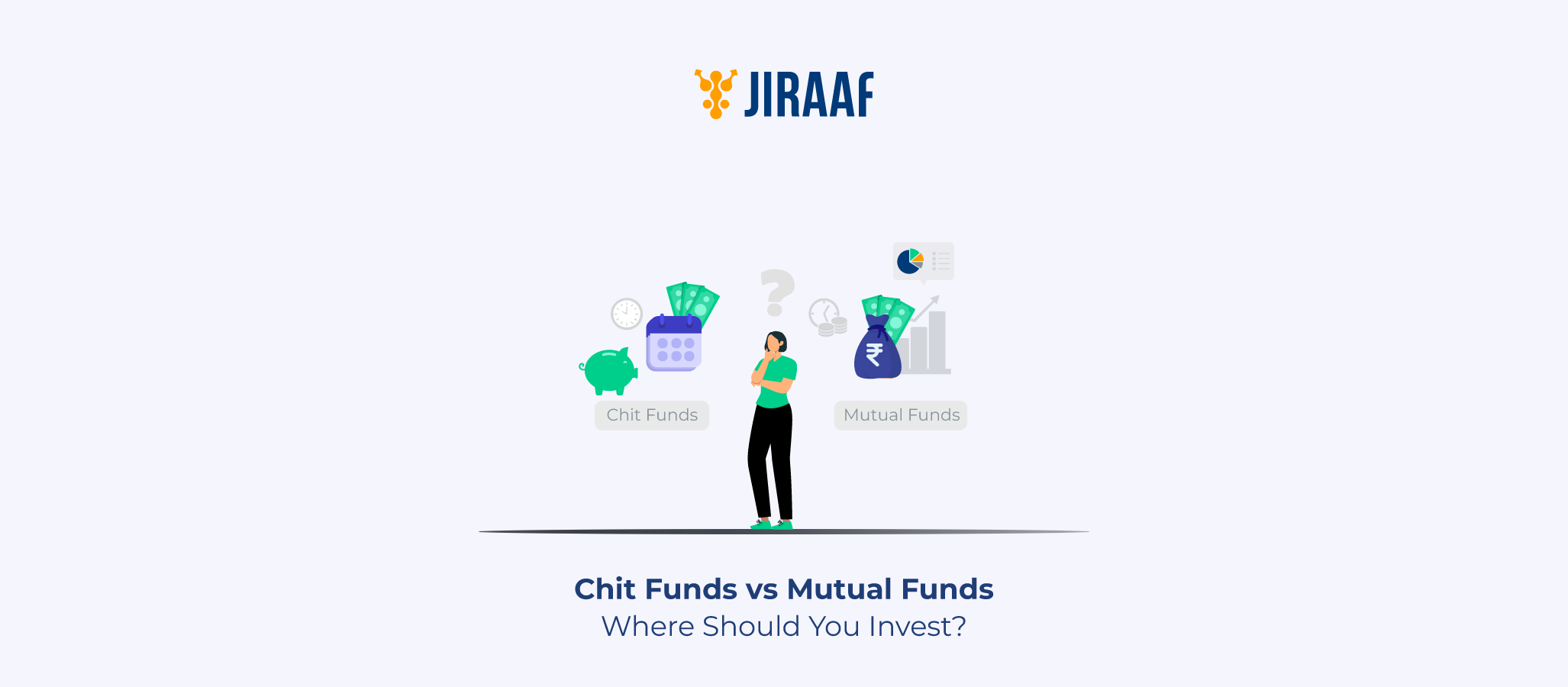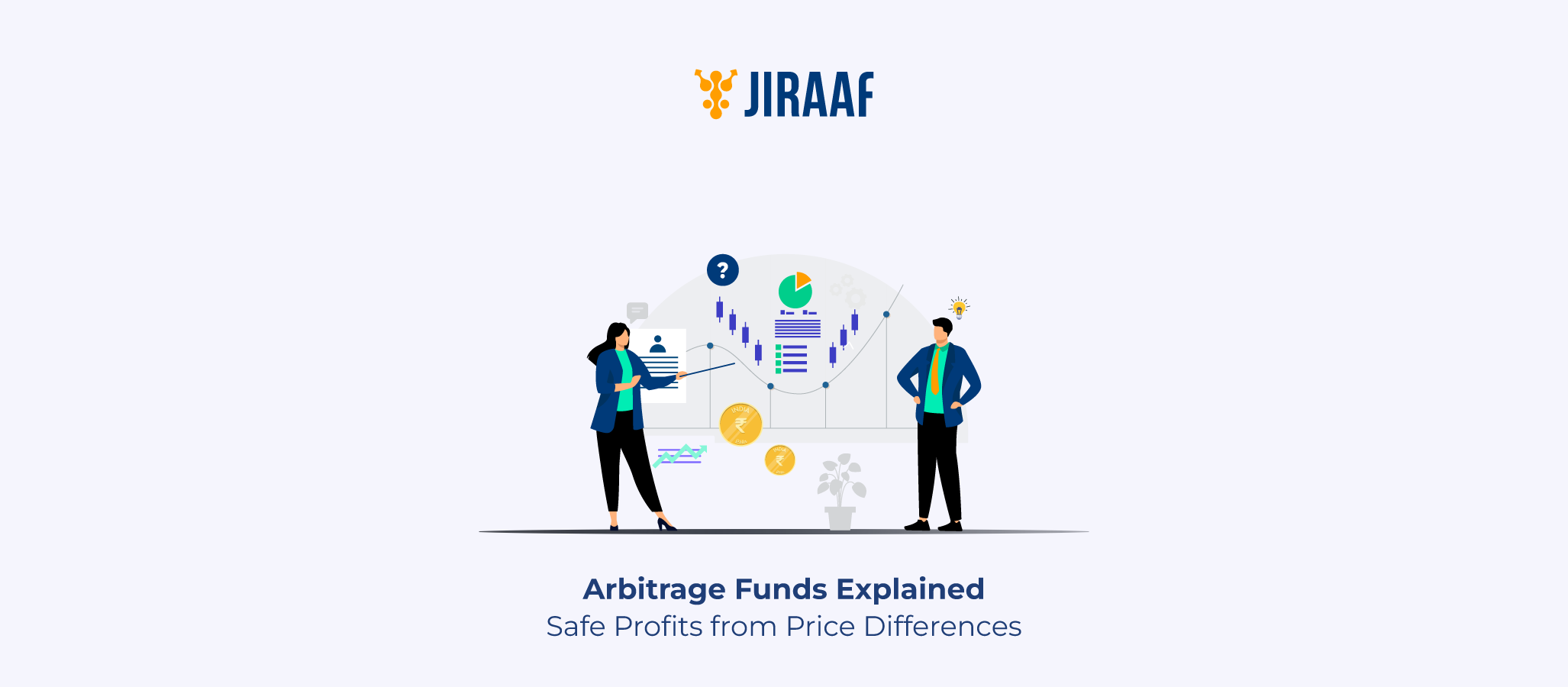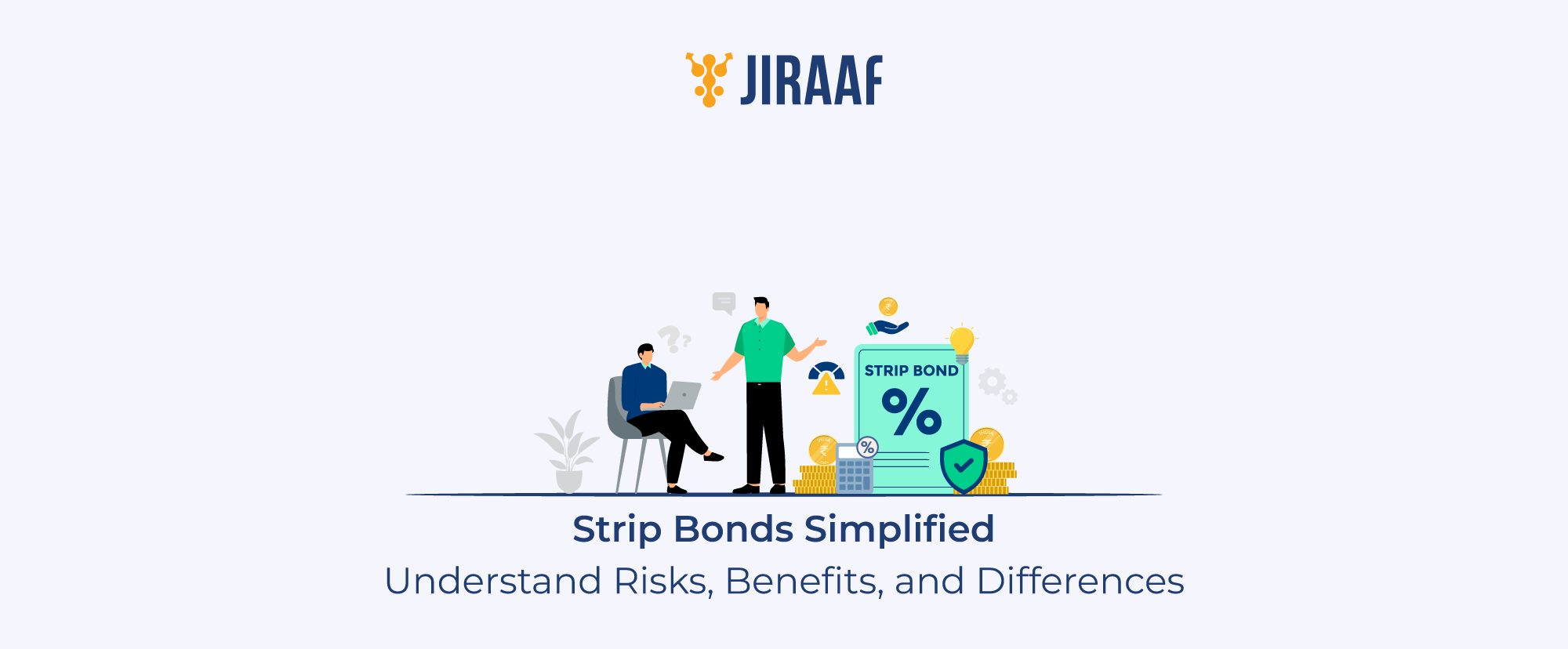When you’re exploring ways to grow your money, you’ve probably come across both chit funds and mutual funds. While they might sound similar – pooling money from people -they work very differently. Understanding the key differences between the two can help you make a smarter choice depending on your goals, risk tolerance, and liquidity needs. In this blog, you’ll get a clear comparison of chit funds and mutual funds – how they work, the risks they come with, and which one fits your overall financial goals best.
What Is a Chit Fund and How Does It Work?
A chit fund is a group saving and borrowing scheme. Think of it as a rotating savings club. Each month, you and a bunch of other members contribute a fixed amount into a common pool. At regular intervals, one member gets access to the pool, either by lottery or through an auction where the person willing to take the lowest amount wins the pot.
Here’s how it typically plays out:
- Let’s say you’re part of a chit group with 20 people, each contributing ₹5,000 per month.
- Every month, ₹1,00,000 is collected.
- The person who bids to take the lowest amount (say ₹85,000) gets it.
- The leftover ₹15,000 (after a commission to the organizer) is distributed among the rest.
- This continues until everyone has received the pooled sum.
Chit funds are common in India, especially in small towns and among people who prefer community-based saving techniques. Nevertheless, they do come with their risks, particularly if you’re dealing with unregistered or informal chit groups.
What Is a Mutual Fund and How Does It Work?
A mutual fund is a professionally managed investment product where your money is pooled with other investors and invested in various securities like stocks, bonds, or a mix of both. A professional fund manager handles the portfolio, aiming to maximize your returns while keeping the risk minimal.
Here’s how it works for you:
- You choose a fund that aligns with your goals (like growth, income, or tax-saving).
- You invest a lump sum or start a SIP (Systematic Investment Plan).
- Your returns are based on the performance of the fund’s underlying assets.
Mutual funds in India are regulated by SEBI (Securities and Exchange Board of India) to ensure transparency, prevent leaks, and protect you. They’re also more flexible; you can redeem your money whenever you need it (except in closed-ended or tax-saving schemes).
Chit Fund vs Mutual Fund: Key Differences You Should Know
| Feature | Chit Fund | Mutual Fund |
| Goal | Savings + borrowing. | Wealth creation. |
| Managed By | Organizer. | Professional fund managers. |
| Returns | Variable according bid; not fixed. | Market-linked; can compound well. |
| Risk | Default or fraud risk (organizer/participants). | Market risk but regulated. |
| Liquidity | Low – funds released based on your needs. | High – redeem anytime (open-ended funds). |
| Transparency | Low – especially in unregistered chit funds. | High – NAVs and holdings disclosed. |
| Regulation | Governed by the state chit fund acts. | SEBI-regulated. |
| Charges | High commission (up to 5–10%). | Expense ratios (typically 0.5–2.5%). |
Returns: Which Option Offers Better Gains?
If you’re looking for predictable short-term access to funds, chit funds might seem attractive, especially if you “win” early in the cycle. The returns you get often depend on how much of a discount you agree to during the auction and how much commission the organizer charges.
Mutual funds, on the other hand, are built for long-term wealth creation. While returns aren’t guaranteed, historically, equity mutual funds have delivered 10–15% annualized returns over the long run. Debt mutual funds offer lower returns, but with relatively less risk.
So, if your focus is growing your money over 3–5+ years, mutual funds typically win.
Safety and Regulation: Which One’s Safer?
Let’s be real – safety matters, especially when your hard-earned money is on the line.
- Chit funds, especially unregistered ones, are notorious for scams. You may have heard of incidents where organizers vanished with investors’ money. Even registered chit funds offer no guarantee of repayment if another participant defaults.
- Mutual funds, however, are stringently monitored by SEBI. Fund houses must disclose holdings, returns, expense ratios, and more. You get regular updates, and your money is held with a custodian, not with the fund house itself.
If safety and transparency are your priority, mutual funds are far more reliable.
Liquidity and Accessibility
If you think you might need your money in a pinch, you’ll want to consider liquidity.
- With chit funds, you’re often locked into the scheme until the entire cycle completes. This could take months or years. Exiting early usually involves penalties or forfeiting benefits.
- Mutual funds (especially open-ended funds) let you redeem your money anytime. For ultra-short-term needs, you can look at liquid funds or overnight funds, which allow you to withdraw funds in 24 – 48 hours.
Also, getting started with a mutual fund is easy. Most platforms let you start SIPs with as little as ₹500 per month – some even less.
Which Investment Should You Choose Based on Your Goals?
Still wondering what’s right for you? Here’s a simple rule of thumb:
- Choose chit funds if:
- You want a disciplined way to save monthly.
- You might need a lump sum at a future date.
- You personally know and trust the organizer and its members.
- Choose mutual funds if:
- You’re aiming for long-term financial growth.
- You want professional management and diversification.
- You value flexibility, liquidity, and regulation.
A lot of younger investors prefer mutual funds because of their digital convenience, low entry costs, and tax benefits (especially with ELSS funds).
FAQs
Are chit funds safe for investment?
Chit funds are less safe than regulated choices like mutual funds. While some registered chit funds function legally, many are uncontrolled, increasing the danger of fraud or default. Unlike mutual funds, which are regulated by SEBI, chit funds are based on collective trust. Only invest if you trust the operator and understand the hazards.
Who regulates chit funds in India?
State governments supervise registered chit funds following the Chit Funds Act of 1982. However, many illicit schemes operate outside of the law. Before investing, always check with local authorities to ensure that operators are registered. SEBI does not regulate chit funds.
Can I earn more from chit funds than mutual funds?
Chit funds can offer better short-term returns (12-24% p.a.), but they have a significant default risk. Mutual funds with SEBI protection often earn 10-15% in long-term returns. Chit funds are unreliable sources of long-term capital growth.
Which is better for short-term financial needs: a chit fund or a mutual fund?
For short-term needs (<3 years), liquid mutual funds (5-8% returns) are more secure than chit funds. Chit funds guarantee immediate cash but run the risk of default. Only consider chit funds if you recognize and trust the group and require immediate money.
What are the risks involved in chit fund investment?
Chit funds carry several risks that investors should be aware of. These include fraud risk, as unregistered operators may disappear with the collected funds; default risk, where members delay or fail to make payments; lack of insurance, since unlike bank deposits, chit fund contributions are not insured; and legal challenges, where recovering money becomes difficult if the group collapses or disputes arise.
Discover fixed income investments with Jiraaf, a SEBI registered online bonds platform that educates and brings access to a wide array of bonds. Sign up today to explore diversified fixed income investment opportunities to support your goal-based wealth creation journey. Start investing!









